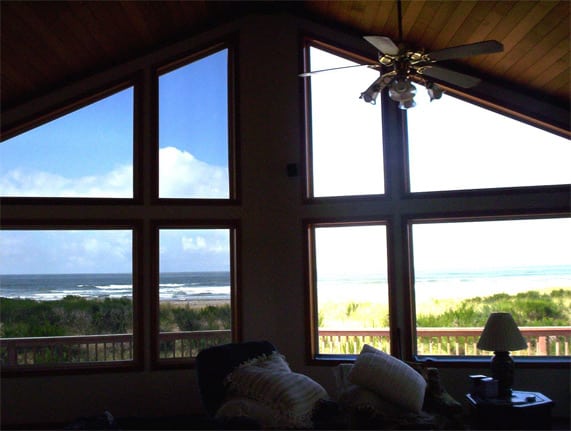Exactly How Residential Window Tinting Enhances Your Home's Power Efficiency
Residential window tinting presents an engaging remedy for house owners seeking to boost power effectiveness within their living areas. By using specialized films to windows, it efficiently decreases warmth transfer, consequently stabilizing indoor temperatures and decreasing the requirement for excessive heating or cooling. This not just curtails energy intake however likewise offers a more comfy atmosphere by mitigating glow. Nevertheless, comprehending the nuances of just how tinting works and picking the appropriate kind for your home can be pivotal. Strangely enough, what aspects should one consider before making this financial investment?
Comprehending Home Window Tinting
Comprehending window tinting is necessary for house owners seeking to boost both convenience and energy performance in their living areas. Residential Window Tint. Home window tinting entails the application of a thin film to the interior or exterior surface area of glass home windows. This film can considerably modulate the amount of sunlight and warmth that gets in a home, hence affecting interior environment problems
There are various sorts of home window tinting films offered, each with distinct buildings. Dyed films take in solar power, while reflective movies deflect it away from the glass surface area. Ceramic movies provide a balance of visibility and heat rejection, making them a preferred choice amongst homeowners. The performance of home window tinting is frequently determined by its Visible Light Transmission (VLT) portion, which shows just how much light can go through the film.
Benefits of Energy Efficiency
Home window tinting not just enhances aesthetics yet additionally plays a considerable duty in improving power performance within property spaces. By lowering heat transfer with home windows, tinted movies develop a much more secure interior climate, which can result in significant decreases in energy intake for home heating and cooling. This power efficiency equates into lower utility costs, offering home owners with significant lasting cost savings.

In addition, home window tinting improves the comfort of living areas. By minimizing glare and blocking unsafe UV rays, tinted home windows develop an even more pleasurable atmosphere, which can lead to boosted well-being for occupants. The protection versus UV rays likewise helps protect furnishings and flooring from fading, adding to the long life of home products.
Exactly How Tinting Functions
Tinting movies run through a mix of advanced products and technologies developed to regulate the quantity of solar energy entering a home. Largely made up of polyester, these movies frequently include ceramic or metallic particles that mirror and soak up heat. This double ability enables them to considerably decrease the penetration of ultraviolet (UV) rays and infrared radiation while allowing noticeable light to travel through.
The performance of home window tinting is measured by its solar warm gain coefficient (SHGC), which suggests just how much solar power is transmitted via the window. Lower SHGC values are better as they represent better heat rejection. In addition, window colors can feature a selection of tones, allowing property owners to customize their aesthetic preferences while enhancing energy efficiency.
Furthermore, these movies serve as a barrier, stopping heat loss during cooler months by showing indoor warmth back into the living room. This thermal insulation impact matches the air conditioning advantages gotten throughout warmer months, adding to a well balanced indoor environment year-round. By handling solar power properly, residential home window tinting not only enhances comfort however additionally plays a vital duty in minimizing energy usage and decreasing utility expenses.
Choosing the Right Color

There are numerous kinds of home window movies offered, consisting of dyed, metalized, and ceramic. Ceramic movies give outstanding warm control without endangering visibility and are very durable, making them a prominent choice.
Visible light transmission (VLT) is an additional crucial factor, as it indicates the amount of natural light that can go through the tinted glass. Property owners should select a color with a VLT that complements their lights preferences while still offering adequate glow decrease.
Furthermore, assessing the solar warmth gain coefficient (SHGC) can help establish how well a tint can block warm from sunshine. A lower SHGC indicates far better warm control, eventually improving energy effectiveness.
Installation and Maintenance Tips
Proper installment find this and upkeep are important components in making best use of the advantages of property window tinting. Specialists likewise make use of specialized techniques and devices, which can boost the resilience and efficiency of the color.
Adhering to installation, upkeep is vital to extend the life of the window film. It is advised to wait at the very least 30 days before cleaning the colored home windows to allow the sticky to cure completely.
In addition, regular evaluations are helpful. Look for any kind of peeling or bubbling, which can indicate incorrect installation or use in time - Residential Window Tint. Addressing these problems immediately can avoid more damage and maintain power effectiveness. By adhering to these setup and maintenance pointers, house owners can ensure their home window tinting remains to provide substantial energy financial savings and comfort view it for several years ahead.
Conclusion
In conclusion, domestic window tinting offers as a reliable option for improving energy performance within homes. By minimizing warm transfer and blocking hazardous UV rays, window movies add to lower energy consumption and enhanced indoor comfort.
Window tinting entails the application of a slim movie to the inside or exterior surface area of glass windows. By lowering warmth transfer via windows, tinted movies develop an extra secure interior climate, which can lead to substantial reductions in power intake for home heating and cooling.The performance of home window tinting is gauged by its solar heat gain coefficient (SHGC), which indicates just how much solar energy is transmitted via the home window. By managing solar energy efficiently, residential window tinting not only boosts convenience yet additionally plays an essential role in minimizing power usage and decreasing energy bills.
By minimizing warmth transfer and blocking dangerous UV rays, window movies add to decrease power intake more information and improved interior comfort.